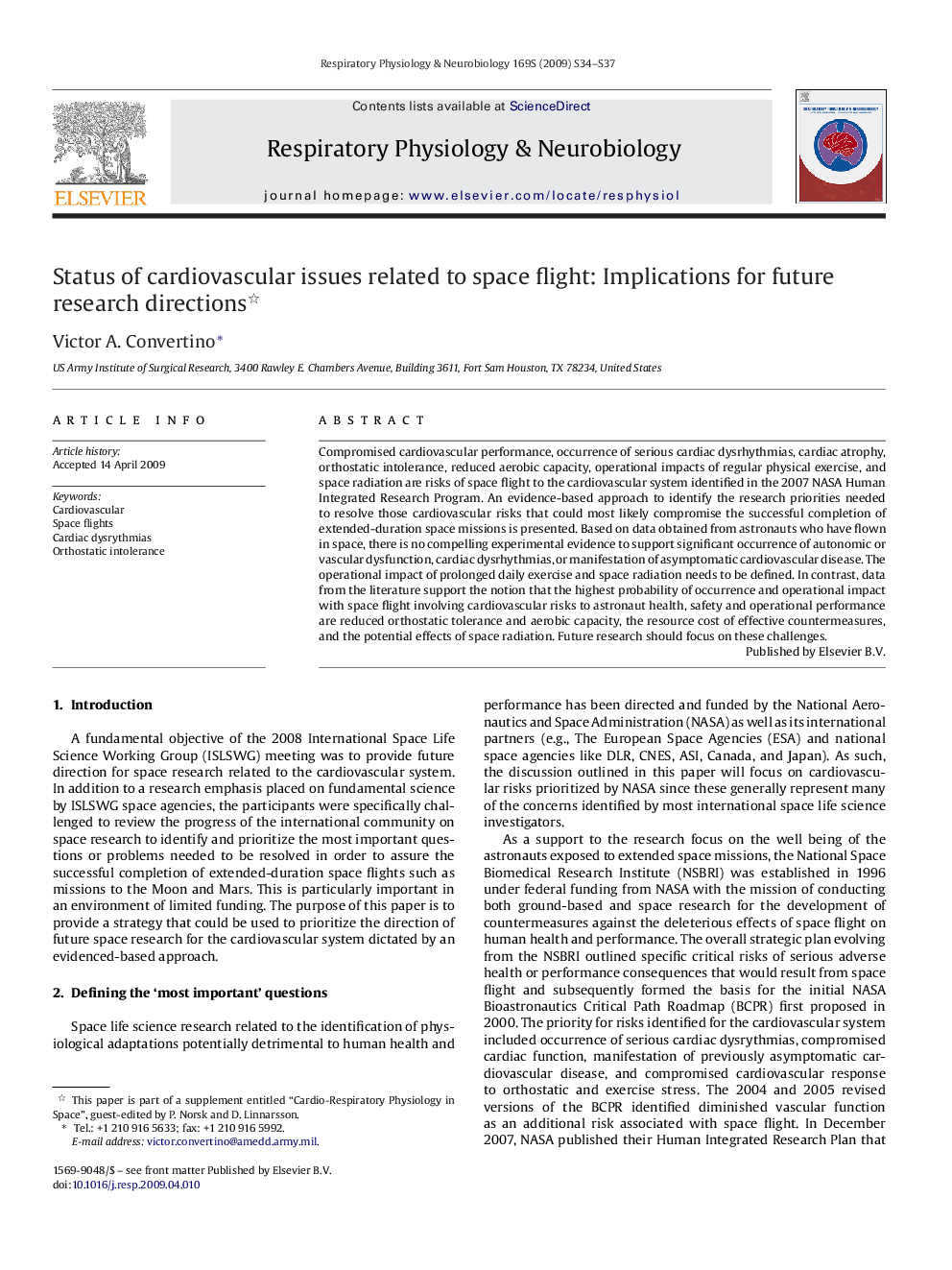| Article ID | Journal | Published Year | Pages | File Type |
|---|---|---|---|---|
| 2847823 | Respiratory Physiology & Neurobiology | 2009 | 4 Pages |
Compromised cardiovascular performance, occurrence of serious cardiac dysrhythmias, cardiac atrophy, orthostatic intolerance, reduced aerobic capacity, operational impacts of regular physical exercise, and space radiation are risks of space flight to the cardiovascular system identified in the 2007 NASA Human Integrated Research Program. An evidence-based approach to identify the research priorities needed to resolve those cardiovascular risks that could most likely compromise the successful completion of extended-duration space missions is presented. Based on data obtained from astronauts who have flown in space, there is no compelling experimental evidence to support significant occurrence of autonomic or vascular dysfunction, cardiac dysrhythmias, or manifestation of asymptomatic cardiovascular disease. The operational impact of prolonged daily exercise and space radiation needs to be defined. In contrast, data from the literature support the notion that the highest probability of occurrence and operational impact with space flight involving cardiovascular risks to astronaut health, safety and operational performance are reduced orthostatic tolerance and aerobic capacity, the resource cost of effective countermeasures, and the potential effects of space radiation. Future research should focus on these challenges.
